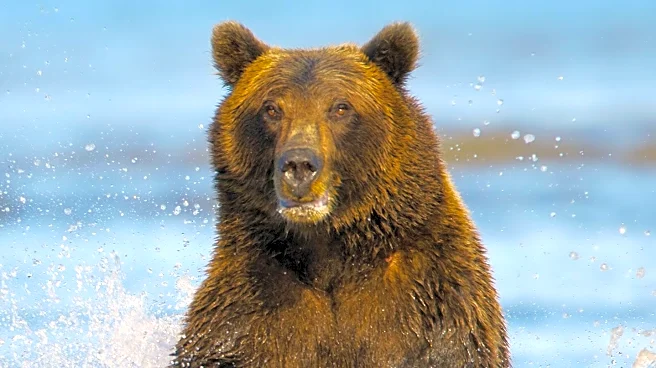What is the story about?
What's Happening?
Fat Bear Week, an annual online competition celebrating Alaskan brown bears preparing for hibernation, is starting earlier this year on September 23. The event, typically held in October, is hosted by Katmai National Park and Preserve. This year's early start is attributed to an extraordinary salmon run, providing ample nourishment for the bears. The competition features a bracket tournament where fans vote for their favorite bears, including past champions like 128 Grazer and 747, known as Bear Force One. The event aims to educate the public about brown bears and their ecosystem.
Why It's Important?
Fat Bear Week highlights the importance of healthy ecosystems and the role of salmon in supporting wildlife populations. The event draws global attention to conservation efforts and the unique wildlife of Katmai National Park. It serves as an educational tool, raising awareness about the challenges faced by brown bears and the impact of environmental changes. The competition also fosters community engagement and appreciation for natural habitats, potentially influencing conservation policies and initiatives.
What's Next?
As Fat Bear Week progresses, organizers anticipate increased participation and voting from international audiences. The event's popularity may lead to expanded educational programs and partnerships with conservation organizations. Future competitions could incorporate new technologies to enhance viewer experiences and engagement. The success of this year's event may also prompt discussions on sustainable practices to ensure the continued health of salmon populations and bear habitats.
Beyond the Headlines
The early start of Fat Bear Week underscores the impact of climate and environmental factors on wildlife behavior. The abundance of salmon has reduced conflicts among bears, highlighting the interconnectedness of species within ecosystems. This development may inspire further research into the effects of climate change on animal populations and their habitats, emphasizing the need for adaptive conservation strategies.

















